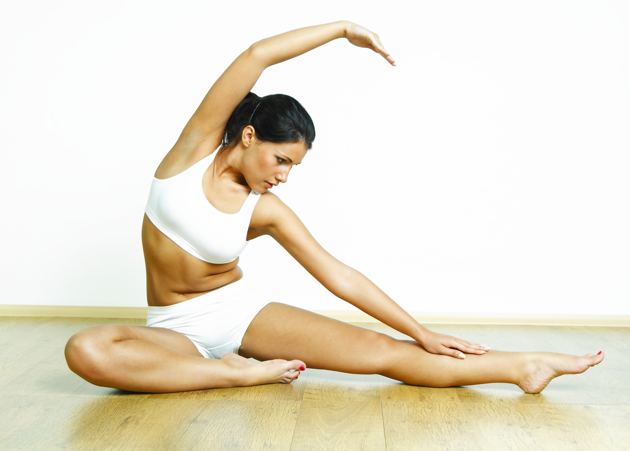“My thighs are SO not welcome here,” a friend of mine whispered as we browsed through yoga section of a local sportswear store. “This is why I don’t do yoga. It’s the sport of skinny chicks.”
She shrugged and scurried off to peruse a rack of colorful running shoes.
As I glanced down at the pair of yoga pants I was holding, I recalled that this wasn’t the first time I’ve heard a similar sentiment expressed by friends and family members—a reflection of the understanding that the typical yogi is a certain type of person: lean, long, and vegan, perhaps?
The corners of my mouth turned downwards as I thought about how mistaken her impression of yoga was.
There is no typical yogi.
There’s no body type that is more welcome on the mat than any other. Like every woman (and certainly many men), I’ve struggled with my personal body image throughout my life. But if there’s one lesson I’ve learned from yoga—when you talk to your body, it listens.
It’s not uncommon for a yoga class to begin or end with the teacher instructing students to send a mental check through their bodies: “Put your mind in your muscles.” Yoga teaches us how to listen to our bodies, how to check in and recognize change, pain, or strength.
But as I’ve learned to listen to my body, I’ve come to understand that listening is a two-way street. For this reason, negative body talk has no place on the yoga mat. You can’t tell your thighs that they’re not welcome, and then expect them to hold you strong.
You can’t criticize the width of your hips and then expect them to help you push further in your practice. You can’t forget that they’re the hips that you balance your children on, that give you the flexibility to put hard work into your daily life.
While you may yearn for leaner, sleeker arms, your arms, just as they are, not only hold you strong during plank, but also hold your loved ones tight.
No one comes to the mat as a perfect specimen.
We are all a work in progress. But yoga is not and never has been about perfection—not in your practice, and not in the shape of your body. Never let the fear of imperfection keep you from continuing on your journey toward health and wellness. You can only improve and grow stronger.
Instead of criticizing yourself, you should be applauding yourself for making healthy decisions. Negativity toward yourself and your body will not push you forward. Instead, it will detract from your practice by imbibing it with pessimism and create a disconnect between your mind and your body.
What’s essential for gaining the most out of your practice is positivity in the deepening connection between your mind and your body.
"It is a shame for a woman to grow old without ever seeing the strength and beauty of which her body is capable." – Socrates
Don’t allow your insecurities to get the best of you in your practice. We all have them; I’ve struggled with them my whole life. There is no ideal yogi body or shape—there’s only you, giving everything you can with the body you were born with, the body that carries you through each and every day.
And there is nothing more perfect than that.


